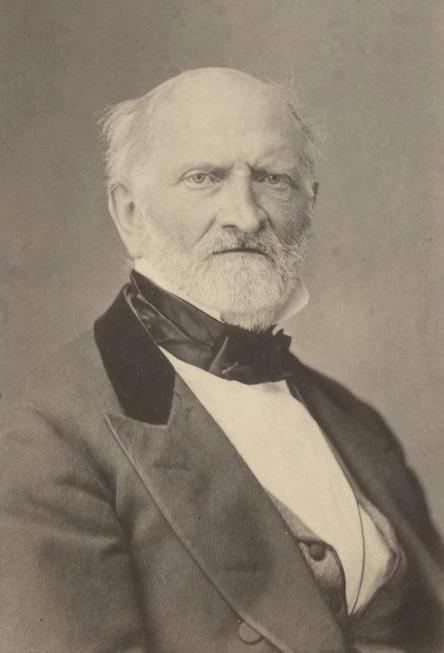We bear the name and carry the spirit of a famous scholar! For a long time, Ferdinand Johann Wiedemann's voluminous Estonian-German dictionary (Ehstnisch-Deutsches Wörterbuch, 1869) was the most comprehensive dictionary of the Estonian language. His grammar of the Estonian language in German (Grammatik der Ehstnischen Sprache), published in 1875, united the North and South Estonian dialects. Regarding both Wiedemann's grammar and his dictionary, today's linguists emphasise that they contributed to the emergence of a new, unified and rich Estonian language. Wiedemann was also fascinated by Estonian folklore and ethnography. His book Aus dem inneren und äusseren Leben der Ehsten (“About the internal and external life of the Estonians”, 1876) is a rich collection of proverbs, sayings and riddles, and contains descriptions of folk games, customs and traditions.
As one of the most versatile linguists of his time and the founder of the Estonian literary language, Wiedemann is an indisputable inspiration and role model for our work in today's diverse translation landscape.
Wiedemann had an extraordinary capacity for work. He was fluent in 20 languages, and in addition to Estonian, he published comprehensive studies on Livonian, Votian, Komi, Udmurtian, Mari, Erza and Moksha, as well as other Finno-Ugric languages. Ferdinand Johann Wiedemann was also a passionate botanist, publishing an extensive survey of the plants of Estonia, Livonia and Courland, including their traditional names and uses. Wiedemann was tireless and went on numerous expeditions to gather material for his research. He held an honorary doctorate from the University of Tartu, and was a member of the St. Petersburg Academy of Sciences and an honorary member of a number of scientific societies. Wiedemann's love of music is also noteworthy – throughout his life he played in amateur orchestras, arranged music for various ensembles, and also composed. He often held concerts in his own home, participating himself as an enthusiastic clarinet player. During his most productive years of research, Ferdinand Johann Wiedemann lived in St Petersburg. He is buried in Smolensk Lutheran Cemetery there.
Many translators in Wiedemanni Translations are also polyglots, most of us love or practise music, and to top it off, we have green fingers. We feel that the invisible presence of the spirit of Johann Wiedemann will continue to support us in the 21st century.

